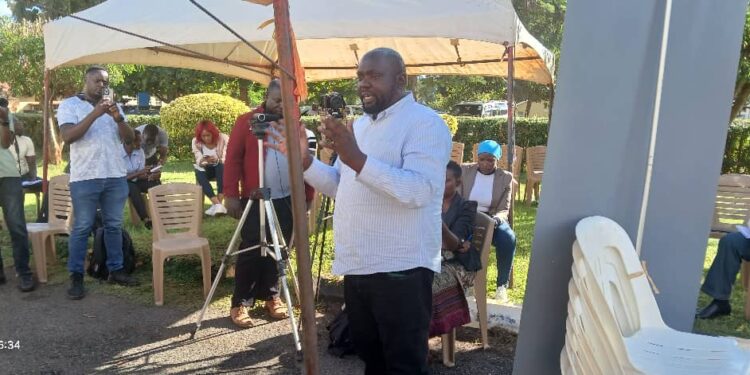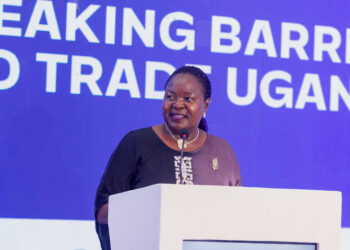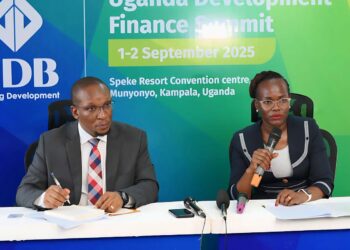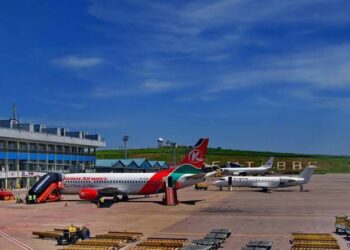The Jinja South West Constituency election is shaping up to be a highly competitive contest, with Moses Grace Balyeku, the NRM flagbearer, facing off against Hon. Timothy Lusala Batuwa, the incumbent MP who recently defected to NUP.
Despite Balyeku’s retention of the NRM flag, Batuwa remains confident of winning, describing Balyeku as a “weak and beatable candidate.”
Allegations of Electoral Irregularities.
The NRM primaries in Jinja South West were marred by allegations of irregularities, including voting irregularities and discrepancies in results.
Former Jinja RDC Eric Joseph Sakwa, a defeated candidate, led a protest through Jinja City, claiming the election outcome was fraudulent. Sakwa garnered only 71 votes, while Balyeku won with 9,290 votes.
“They had a very chaotic and fraudulent electoral process led by Dr. Tanga Odoi,” Batuwa said, adding that the results reflect how disorganized the ruling party is and that they are ready to dismantle the confusion.
Defeated Candidates Petition Tribunal.
The defeated candidates, including Sakwa, Daniel Kanu, and David Collins Talenga, have petitioned the newly established Tribunal, challenging the results.
Hearing of the petitions have begun on 29th August, 2025 in Kampala.
“…Balyeku’s win was a result of malpractices, including bribery and corruption,” Sakwa claimed.
Balyeku Hits Back at Critics.
Balyeku has responded to his critics, calling them bad losers. Commentators attributed his success to his strong visibility on various platforms, including Baba TV, Baba Radio, and Tok-tok, which has helped him build immense support among residents and voters.
“…My candidacy was and is demand-driven from the residents and voters who felt my absence after 10 years as MP,” Balyeku said, adding that he will “embarrass” those who risk contesting against him this time around.
Hon Batuwa hitherto the Shadow Health Minister, however, remains confident of winning, saying Balyeku will be his “breakfast, lunch, and dinner” on polling day, implying he will outperform Balyeku throughout the day.
Competitive Election Ahead.
The Jinja South West Constituency election is expected to be highly competitive, with several candidates vying for the seat. Batuwa is confident of winning, while Balyeku is determined to reclaim his seat and promises to create more jobs and improve infrastructure in the constituency.
Others expected to join the race include FDC’s Bernard Mbayo (Jinja City Council Speaker), Paul Kawanguzi of PFF, Ivan Isiko (Ecological Party of Uganda), Erick Sakwa, Daniel Kanu, David Collins Talenga and others.
The election outcome remains uncertain, with both sides gearing up for a fierce contest
Analysts Speak Out.
The current state of politics in Uganda is a subject of concern for many analysts, who argue that the system has become highly commercialized, making it challenging for quality leaders to emerge.
With parliamentary positions offering a sure source of livelihood, many politicians mortgage their assets or take risky loans to fund their campaigns, often compromising the integrity of the electoral process.
The Challenges of Ugandan Politics
Commercialization of Politics: The high cost of running for office has led to a situation where politicians prioritize personal gain over public service, undermining the effectiveness of governance.
Limited Voter Confidence: Ugandan voters have expressed mistrust in political parties, with many believing that parties are more focused on personal interests than serving the public good.
Internal Party Deficiencies: Political parties in Uganda are often poorly institutionalized, disorganized, and internally divided, which limits their capacity to deliver credible and representative governance.
The Impact on Governance.
The commercialization of politics has far-reaching implications for governance in Uganda. Once elected, many politicians focus on recouping their investments, often at the expense of their constituents’ needs. This has led to a disconnect between the electorate and their representatives, with many voters feeling abandoned and disillusioned.
The Role of Youth and Economic Issues.
As Uganda approaches the 2026 general elections, the role of youth and economic issues is becoming increasingly prominent. With over 75% of the population under the age of 30, young people are expected to play a significant role in shaping the country’s future.
Economic issues, particularly unemployment and inflation, are also at the forefront of political debates, with candidates and parties focusing on policies aimed at job creation and economic empowerment.
The Way Forward.
To address these challenges, Uganda needs to prioritize electoral reforms, increase transparency in campaign financing, and promote a culture of public service among its leaders.
By doing so, analysts say the country can create an environment that fosters quality leadership and effective governance, ultimately benefiting its citizens and promoting sustainable development.
Do you have a story in your community or an opinion to share with us: Email us at editorial@watchdoguganda.com














